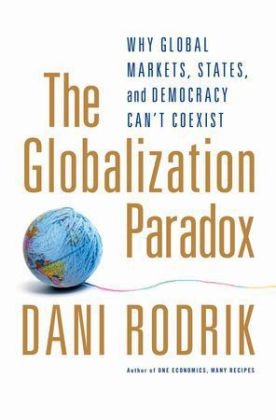Read more
For a century, economists have driven forward the cause of globalization in financial institutions, labour markets, and trade. Yet there have been consistent warning signs that a global economy and free trade might not always be advantageous. Where are the pressure points? What could be done about them? Dani Rodrik examines the back-story from its seventeenth-century origins through the milestones of the gold standard, the Bretton Woods Agreement, and the Washington Consensus, to the present day. Although economic globalization has enabled unprecedented levels of prosperity in advanced countries and has been a boon to hundreds of millions of poor workers in China and elsewhere in Asia, it is a concept that rests on shaky pillars, he contends. Its long-term sustainability is not a given. The heart of Rodrik>'s argument is a fundamental 'trilemma': that we cannot simultaneously pursue democracy, national self-determination, and economic globalization. Give too much power to governments, and you have protectionism. Give markets too much freedom, and you have an unstable world economy with little social and political support from those it is supposed to help. Rodrik argues for smart globalization, not maximum globalization.
List of contents
From the contents:
Introduction: Recasting Globalization's Narrative
1: Of States and Markets: Globalization in History's Mirror
2: The Rise and Fall of the First Great Globalization
3: Why Doesn't Everyone Get the Case for Free Trade?
4: Bretton Woods, GATT, and the WTO: Trade in a Politicized World
5: Financial Globalization Follies
6: The Foxes and Hedgehogs of Finance
7: Poor Countries in a Rich World
8: Trade Fundamentalism in the Tropics
9: The Political Trilemma of the World Economy
10: Is Global Governance Feasible? Is It Desirable?
11: Designing Capitalism
12: A Sane Globalization
Afterword: A Bedtime Story for Grown-ups
Report
This book takes on the biggest issue of our time - globalization - and eloquently enlarges the debate about the extent and limits of global cooperation. Gordon Brown, MP

